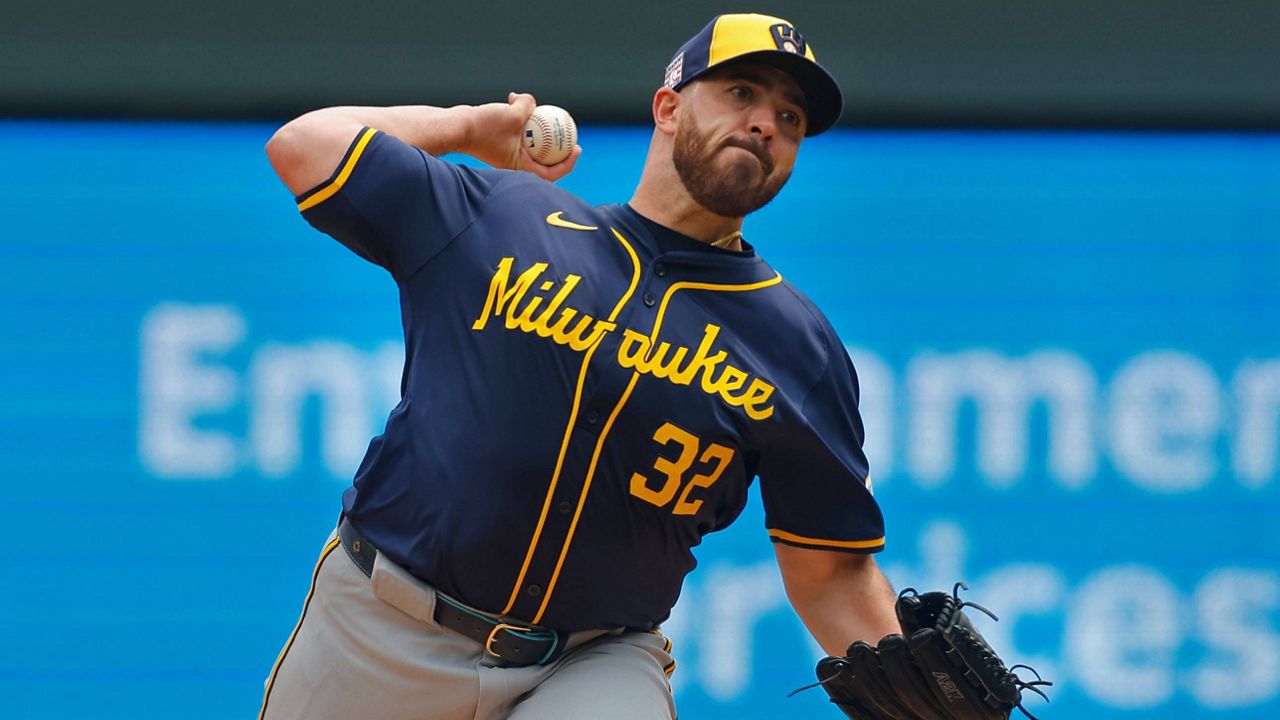When the Aaron Civale White Sox trade was announced, few saw it coming. But beneath the surface, this deal says a lot more than just names switching teams. Why did a seasoned pitcher like Civale suddenly want out? Why did the White Sox move a power-hitting prospect like Andrew Vaughn? And what does this say about Chicago’s direction? Let’s break it down—because this move isn’t just a trade, it’s a signal. A signal that the Chicago White Sox are quietly reinventing themselves.
Why the Aaron Civale White Sox Trade Happened
The Chicago White Sox, in a rebuilding phase, are now prioritizing smart, calculated changes. On Friday, they acquired Aaron Civale from the Milwaukee Brewers in exchange for first baseman Andrew Vaughn—a player who, despite a rough stretch, still has home-run power in his bat.
/cdn.vox-cdn.com/uploads/chorus_image/image/74131792/usa_today_26413536.0.jpg)
Vaughn had struggled this season, hitting under .200 and eventually being sent down to Triple-A. But everyone agrees: he needed a change of scenery. On the other side, Civale was tired of being overshadowed. With the Brewers stacked with rising pitching stars, Civale was pushed to the bullpen, and he knew it was time to move.
The Brewers didn’t waste time. Within hours of his trade request, they pulled the trigger on the deal.
Civale’s Stats This Season: Better Than They Look
Although hemissed a significant portion of the season due to injury, Civale made five starts for Milwaukee in 2025. His numbers might not jump off the page—a 1-2 record with a 4.91 ERA, 19 strikeouts in 22 innings—but they tell only part of the story.
His best performance came against the Boston Red Sox, where he allowed just one run over five innings. Much of the ERA damage came in his season debut versus the Yankees, where he gave up three home runs in just three innings. Since then, he’s shown flashes of the reliable mid-rotation arm he once was in Cleveland.

Now, he’s ready to start fresh. The White Sox confirmed he will start on Sunday against the Texas Rangers, after announcing a series of roster moves on Saturday. That debut might just be the first chapter of his new narrative.
5 Big Wins for Chicago in the Aaron Civale White Sox Trade
Rotation Stability: Civale gives the White Sox a steady, experienced arm in a young and often unpredictable pitching staff.
Motivated Player: After being sidelined, Civale is hungry to prove himself—his first start Sunday will be crucial.
Cost-Effective Talent: Civale’s contract is manageable, giving Chicago flexibility in upcoming free agency periods.
Quick Roster Impact: He’s ready to contribute immediately, unlike some prospects who might take months to develop.
/cdn.vox-cdn.com/uploads/chorus_image/image/72051230/1434592729.0.jpg)
Strategic Reset: Moving Vaughn opens up possibilities at first base and sends a message that underperformance has consequences.
What’s Next for Civale and the Sox?
As the Aaron Civale White Sox trade begins to settle in fans’ minds, all eyes will be on Sunday’s game. Will Civale thrive in a fresh environment? The White Sox are hoping so. His ability to work deep into games and avoid walks gives them exactly what they’ve been missing.
Chicago may not be chasing the postseason this year, but they are making smart, culture-shifting decisions. Civale could be more than just a mid-season trade—he could be a foundational piece in a team that’s quietly getting its act together.
Final Thought: A Trade That Means More Than Numbers
This isn’t just about a pitcher for a hitter. It’s about timing, strategy, and growth. The Aaron Civale White Sox trade might not make headlines like blockbuster deals do, but give it a few weeks, and fans might start calling it a turning point.
Thunder’s Comeback Against the Pacers: 5 Key Facts NBA Fans Missed from Game 4
You Won’t Believe the Pacers-Thunder Game 4 Shocking Outcome Prediction — NBA Fans Are Losing It!

